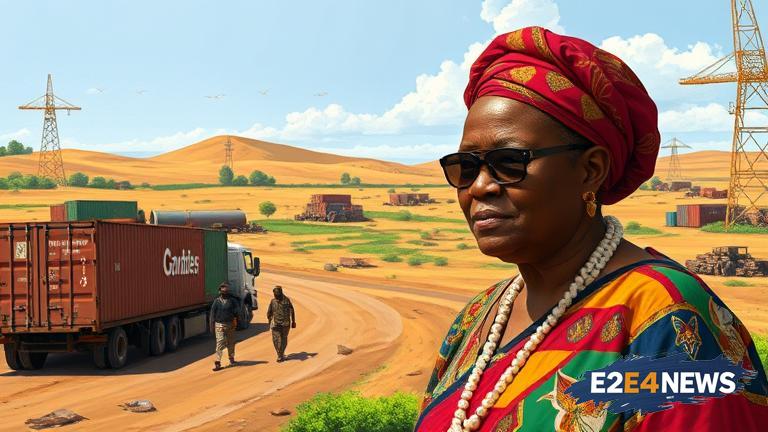The World Trade Organization (WTO) Director-General, Ngozi Okonjo-Iweala, has stressed the importance of removing trade barriers in West Africa to tap into the region’s estimated $500 billion potential. According to Okonjo-Iweala, the region’s economic growth is hindered by restrictive trade policies, which limit the free flow of goods and services. She emphasized that the removal of these barriers would not only boost economic activity but also create jobs and increase competitiveness. The WTO chief made these remarks during a recent visit to the region, where she met with government officials and business leaders to discuss ways to enhance trade facilitation. Okonjo-Iweala noted that West Africa has the potential to become a major economic powerhouse, but this can only be achieved through increased regional cooperation and the adoption of trade-friendly policies. She cited the example of the African Continental Free Trade Area (AfCFTA), which aims to create a single market for the entire continent. The AfCFTA has the potential to increase trade among African countries by 52% by 2030, according to the WTO. However, Okonjo-Iweala warned that the benefits of the AfCFTA can only be realized if countries implement the necessary reforms to facilitate trade. She also emphasized the need for countries to invest in trade-related infrastructure, such as ports and logistics facilities, to reduce the cost of doing business in the region. Furthermore, Okonjo-Iweala called on governments to simplify their customs procedures and reduce the number of documents required for trade. She also encouraged the private sector to take advantage of the opportunities presented by the AfCFTA and to invest in the region. The WTO chief’s comments were echoed by other experts, who noted that the removal of trade barriers would have a positive impact on the region’s economy. They argued that it would lead to increased economic growth, job creation, and poverty reduction. Additionally, the experts noted that the AfCFTA presents an opportunity for West Africa to diversify its economy and reduce its dependence on primary commodities. They also emphasized the need for countries to develop their manufacturing sectors and to increase their exports of value-added products. In conclusion, Okonjo-Iweala’s call for the removal of trade barriers in West Africa is a timely reminder of the need for the region to adopt trade-friendly policies to unlock its vast economic potential. The implementation of the AfCFTA and the simplification of customs procedures are crucial steps towards achieving this goal. With the right policies and investments in place, West Africa can become a major economic powerhouse and achieve sustainable economic growth and development. The region’s governments and private sector must work together to create a favorable business environment and to take advantage of the opportunities presented by the AfCFTA. By doing so, they can unlock the region’s estimated $500 billion potential and create a brighter future for their citizens. The WTO chief’s visit to the region has highlighted the importance of trade facilitation and the need for countries to work together to achieve their economic goals. It is now up to the governments and private sector in West Africa to take the necessary steps to remove trade barriers and unlock the region’s vast economic potential. This will require a coordinated effort and a commitment to implementing the necessary reforms to facilitate trade. With the right policies and investments in place, West Africa can achieve sustainable economic growth and development and become a major economic powerhouse. The region’s estimated $500 billion potential is a significant opportunity that must be seized. The removal of trade barriers is a crucial step towards achieving this goal and creating a brighter future for the people of West Africa.
